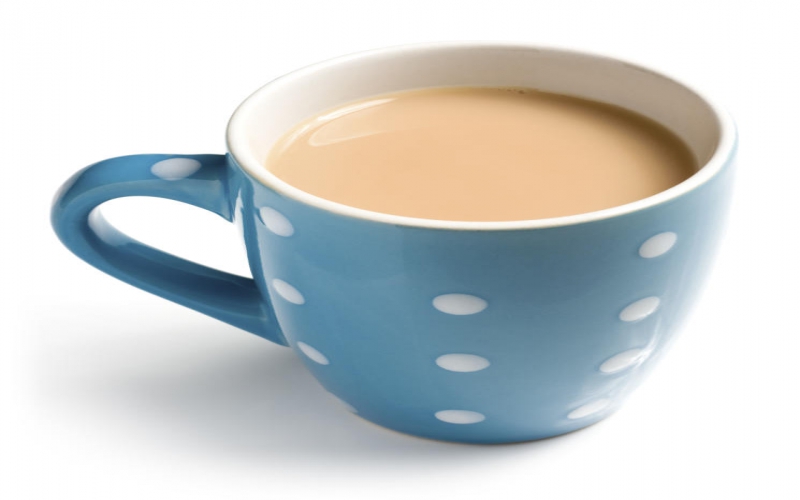
Tea might be many Kenyans’ favourite beverage of choice, the country continues to rank poorly in its consumption compared to other tea-producing countries.
It is a paradox that even players in the tea sector find hard to explain.
Kenya is the world’s third-leading tea producer after China and India. China leads with 2.4 million metric tonnes followed by India with 1.4 million metric tonnes, while Kenya averages 500,000 metric tonnes. “For China and India, most of their tea is consumed locally, but we are the biggest exporter,” said Sasini Group Managing Director Martin Ochieng.
This is compared to India, which consumes 80 per cent of its tea, according to the country’s tea board. China, on the other hand, consumed 2.1 metric tonnes of the tea produced in the country last year, according to statista.com.
But the reason why Kenyans are not taking more tea does not necessarily lie with the tea itself, but on how they define tea. For many Kenyans, tea is not tea if it has no milk and sugar.
In fact, black tea is seen as a sign of poverty in a typical home setting. Those who avoid milk in their tea probably have lactose intolerance, while those who avoid sugar are either diabetic, health-conscious or outrightly broke such that they cannot afford the crucial commodity.
“The British did a very good job in spreading tea all over the world, but they messed when they introduced sugar and milk,” says Robert Gachie, a director at Gatura Greens, a farm that specialises in purple tea in Murang’a County.
As a farmer and ardent lover of tea, Gachie finds no sense when one adds milk to tea. “Tea is a detoxifier, so when you add milk or sugar, it does more harm than good,” he says.
In a research paper published by the Journal of Interdisciplinary History 1992 titled Complications of the Commonplace: Tea, Sugar and Imperialism, author Woodruff D Smith described the act of adding sugar in tea as “insignificant.”
He noted that the practice soon spread to Britain and North America, with the former introducing it to Kenya during the colonial era.
“It was certainly not imported with tea from China,” wrote Smith.
“Europeans put sugar in their tea because they liked it that way.”
And to date, the Chinese and other Asians like the Japanese do not use sugar in their traditional tea.
“We do not have a tea culture. Even the two per cent of the tea we consume locally is from the bottom of the barrel, and this is what happens when people are not knowledgeable,” says Gachie.
Stay informed. Subscribe to our newsletter
The cost of sugar and tea has gone up in the country in the recent past, which could partially explain the decline in the tea-drinking culture.
According to the 2020 Economic Survey, the price of half a litre of milk rose from Sh52.68 in 2015 before rising to Sh53.51 in 2016, Sh59.60 (2017), Sh60.59 (2018) and Sh56.26 (2019).
Sugar, on the other hand, has been on a steady rise, moving from Sh109.24 a kilo in 2015, Sh118.21 (2016), Sh137.82 (2018) and Sh109.87 (2019).
For a Kenyan earning Sh7,240 a month - the basic minimum wage for many unskilled workers in urban centres such as Nairobi, Kisumu and Mombasa this puts the beverage out of their reach. Depending on the size of the family, such expenses daily could be unaffordable against the salary.
Kenya exported tea worth Sh113.5 billion in 2019, according to the Economic Survey. Milk production in the country stands at 5.2 billion litres as recorded by the Kenya Dairy Board in August 2020.
Household consumption of milk stands at 1.8 billion litres annually.
This milk and sugar tradition, Elizabeth Mutisia, a barrister, notes is also common with coffee.
“Most Kenyans love a lot of milk and sugar in their coffee. It may be because coffee is considered bitter,” she says.
[email protected]
 The Standard Group Plc is a
multi-media organization with investments in media platforms spanning newspaper
print operations, television, radio broadcasting, digital and online services. The
Standard Group is recognized as a leading multi-media house in Kenya with a key
influence in matters of national and international interest.
The Standard Group Plc is a
multi-media organization with investments in media platforms spanning newspaper
print operations, television, radio broadcasting, digital and online services. The
Standard Group is recognized as a leading multi-media house in Kenya with a key
influence in matters of national and international interest.
 The Standard Group Plc is a
multi-media organization with investments in media platforms spanning newspaper
print operations, television, radio broadcasting, digital and online services. The
Standard Group is recognized as a leading multi-media house in Kenya with a key
influence in matters of national and international interest.
The Standard Group Plc is a
multi-media organization with investments in media platforms spanning newspaper
print operations, television, radio broadcasting, digital and online services. The
Standard Group is recognized as a leading multi-media house in Kenya with a key
influence in matters of national and international interest.










